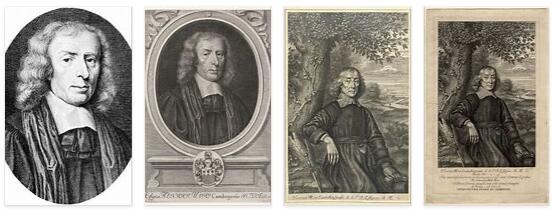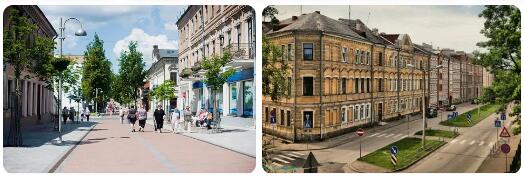England Famous Philosophers and Theologians Part I
Francis Bacon (1561-1621)
philosopher, writer, statesman and pioneer of empiricism. Bacon was born in London in 1561, studied various subjects in Cambridge from the age of 14 and lived with his brother Anthony, who later became a spy. He left behind many valuable philosophical and legal writings. The saying “knowledge is power” comes from Bacon. He died in Highgate in 1621.
Roger Bacon (1214-1292 or 1294)
Franciscan monk and philosopher. Bacon was born near Illchester in 1214 and studied at Oxford University, where he also briefly taught. He later went to Paris University to teach in Europe’s intellectual center. In history he is an advocate pioneer of empirical methods. Bacon became a Franciscan monk at an advanced age and eventually died in Oxford. He was called “Doctor Mirabilis” – “wonderful teacher”.
Jeremy Bentham (1748-1832)
philosopher, social reformer, lawyer. Jeremy Bentham was born in Spitalfields in 1748 to a lawyer and studied at Oxford. He was considered a radical and campaigned for women’s suffrage and also for freedom of the press. He also called for the abolition of the penalty for homosexuality and was a spearhead of utilitarianism. Democracy was also very important to him. Bentham, who usually thought far ahead of his time, died in London in 1832.
Lady Anne Conway (1631-1679)
The philosopher was born Anne Fich in London in 1631 and spent her childhood in what is now Kensington Palace. During her short life, she maintained an intensive philosophical exchange with the Platonist Henry More. Jewish Kabbalah, Quakerism and the teachings of Descartes shaped Conway’s views. With her debut and only work called “The Principles of the Most Ancient and Modern Philosophy” she exerted a significant influence on Gottfried Wilhelm Leibniz. Conway died in her native town in 1679.
Ralph Cudworth (1617-1688)
philosopher and theologian. Ralph Cudworth was born in Somerset in 1617, the son of a minister. After studying in Cambridge, he was given a chair in Hebrew studies and was henceforth titled Regius Professor. Cudworth belonged to the Cambridge Platonists and placed emphasis on human free will in his studies. His epistemology was based on the concept of relation. Cudworth died in Cambridge in 1688.
John Graham (1794-1865)
Bishop of Chester, English academic and tutor to Charles Darwin. Graham was born in Claypath in 1794 and educated at Cambridge. In the university town he was appointed deacon in 1818, later head of Christ College and from 1834 vice chancellor of the university. He was Charles Darwin’s tutor during his studies. In 1848 Graham became Bishop of Chester. He died there in 1865.
John Harvard (1607-1638)
English-American theologian. Harvard was born in London in 1607 and studied at Cambridge. Five years later he moved to America with his wife and became a Doctor of the Church. He died in Massachusetts in 1638 and bequeathed half his fortune and his library to an educational institution. Harvard University was named after him to show its gratitude for the donation, which in turn paved the way for the university system in the USA.
Thomas Hobbes (1588-1679)
philosopher and state theorist. Hobbes was born in Westport in 1588, the son of a minister. Recognized as a child prodigy, he studied at Oxford University at the age of 17. Hobbes most famous work is “Leviathan”, which contains his theory of absolutism. He also dealt intensively with egoism and represented it. He died in Hardwick Hall in 1679.
Charles Kingsley (1819-1875)
Anglican clergyman, theologian, and writer. Kingsley was born in Devon in 1819. He studied in London and Cambridge. He later taught at Cambridge, was chaplain to Queen Victoria from 1859 and became a decade later to the canons of Chester and Westminster Abbey (1873). As a writer, he excelled in particular with the children’s book “Die Wasserkinder”. Kingsley died in Hampshire in 1875.
Hugh Latimer (ca.1485/1492-1555)
bishop and Anglican martyr. Latimer was born a farmer’s son in Leicestershire between 1485 and 1492 and later studied at Cambridge for his academic achievements. Latimer was appointed university minister in 1522. He was a radical advocate of the Reformation, supported the planned divorce from Henry VIII and made many enemies. Latimer was made Bishop of Rochester and Worcester, but was eventually executed under Mary I at Oxford in 1555.
JB Lightfoot (1828-1889)
Anglican Bishop of Durham and British theologian. Joseph Barber Lightfoot was born in Liverpool in 1828. He studied at Cambridge and later became a Fellow and Professor at Trinity College. In 1866 he became a Whitehall preacher, in 1871 a canon at St. Paul’s Cathedral in London and finally in 1879 Bishop of Durham. Lightfoot researched the Bible using new methods before he died in Bournemouth in 1889.
John Locke (1632-1704)
philosopher, psychologist, educator, father of liberalism. John Locke was born in Wrington in 1632. His father was a lawyer. Locke studied medicine and philosophy at Oxford and advanced to become one of the trend-setting representatives of empiricism in Great Britain. The member of the London Royal Society left behind several works, including “Two Treatises of Government” (1690) among the most important. Locke, who exerted great influence during his lifetime, including the American Declaration of Independence, died in Oates in 1704.
John Stuart Mill (1806-1873)
philosopher, sociologist, political economist. John Stuart Mill was born in Pentonville in 1806 as a descendant of the philosopher James Mill. Even as a teenager he dealt with a wide variety of doctrines such as logic and metaphysics. In his philosophy, the principle of experience plays the decisive role in gaining knowledge. The term dystopia (as opposed to utopia) also goes back to him. Mill became one of the most influential positivists of his century. Mill died in Avignon in 1873.
Henry More (1614-1687)
philosopher, poet. Henry More was born into a wealthy family in Grantham in 1614 and later studied at Eton. He led the group of the Cambridge Platonists. The core of his philosophy was the immortality of the soul. After intensive correspondence with the philosopher Anne Consway, he dedicated his book “Antidote against Atheism”, which came out in 1653, to her. Many other writings against materialism and atheism were published by him. More died in Cambridge in 1687.





